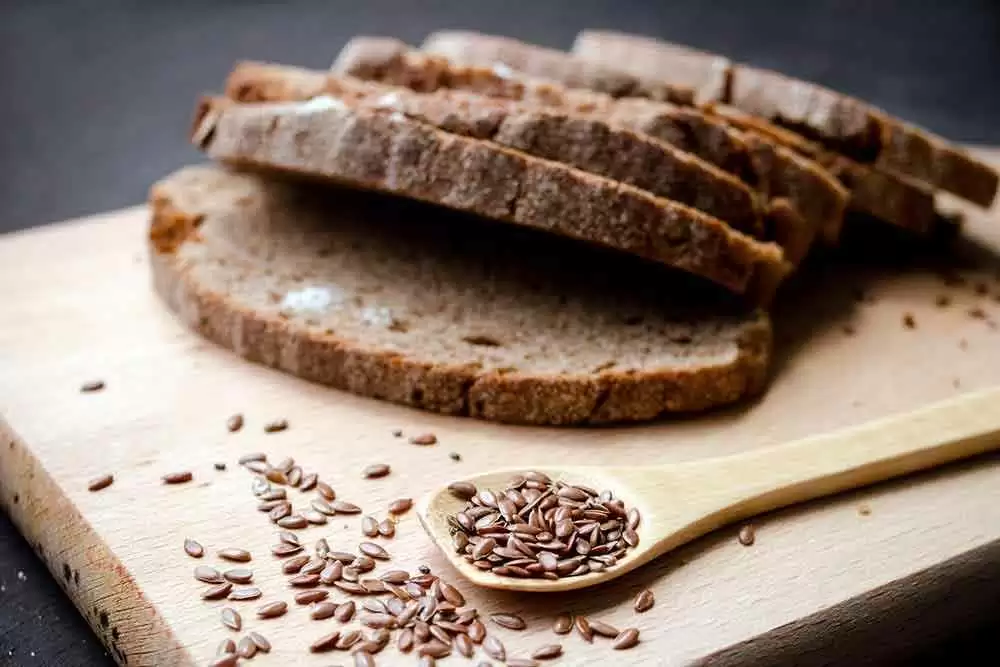
Celiac.com 05/23/2018 - Yes, we at Celiac.com realize that rye bread is not gluten-free, and is not suitable for consumption by people with celiac disease! That is also true of rye bread that is low in FODMAPs.
FODMAPs are Fermentable Oligosaccharides, Disaccharides, Monosaccharides and Polyols. FODMAPS are molecules found in food, and can be poorly absorbed by some people. Poor FODMAP absorption can cause celiac-like symptoms in some people. FODMAPs have recently emerged as possible culprits in both celiac disease and in irritable bowel syndrome.
Celiac.com Sponsor (A12):
In an effort to determine what, if any, irritable bowel symptoms may triggered by FODMAPs, a team of researchers recently set out to compare the effects of regular vs low-FODMAP rye bread on irritable bowel syndrome (IBS) symptoms and to study gastrointestinal conditions with SmartPill.
A team of researchers compared low-FODMAP rye bread with regular rye bread in patients irritable bowel syndrome, to see if rye bread low FODMAPs would reduce hydrogen excretion, lower intraluminal pressure, raise colonic pH, improve transit times, and reduce IBS symptoms compared to regular rye bread. The research team included Laura Pirkola, Reijo Laatikainen, Jussi Loponen, Sanna-Maria Hongisto, Markku Hillilä, Anu Nuora, Baoru Yang, Kaisa M Linderborg, and Riitta Freese.
They are variously affiliated with the Clinic of Gastroenterology; the Division of Nutrition, Department of Food and Environmental Sciences; the Medical Faculty, Pharmacology, Medical Nutrition Physiology, University of Helsinki in Helsinki, Finland; the University of Helsinki and Helsinki University, Hospital Jorvi in Espoo, Finland; with the Food Chemistry and Food Development, Department of Biochemistry, University of Turku inTurku, Finland; and with the Fazer Group/ Fazer Bakeries Ltd in Vantaa, Finland.
The team wanted to see if rye bread low in FODMAPs would cause reduced hydrogen excretion, lower intraluminal pressure, higher colonic pH, improved transit times, and fewer IBS symptoms than regular rye bread.
To do so, they conducted a randomized, double-blind, controlled cross-over meal study. For that study, seven female IBS patients ate study breads at three consecutive meals during one day. The diet was similar for both study periods except for the FODMAP content of the bread consumed during the study day.
The team used SmartPill, an indigestible motility capsule, to measure intraluminal pH, transit time, and pressure. Their data showed that low-FODMAP rye bread reduced colonic fermentation compared with regular rye bread. They found no differences in pH, pressure, or transit times between the breads. They also found no difference between the two in terms of conditions in the gastrointestinal tract.
They did note that the gastric residence of SmartPill was slower than expected. SmartPill left the stomach in less than 5 h only once in 14 measurements, and therefore did not follow on par with the rye bread bolus.
There's been a great deal of interest in FODMAPs and their potential connection to celiac disease and gluten-intolerance. Stay tuned for more information on the role of FODMAPs in celiac disease and/or irritable bowel syndrome.
Source:









Recommended Comments
There are no comments to display.
Create an account or sign in to comment
You need to be a member in order to leave a comment
Create an account
Sign up for a new account in our community. It's easy!
Register a new accountSign in
Already have an account? Sign in here.
Sign In Now